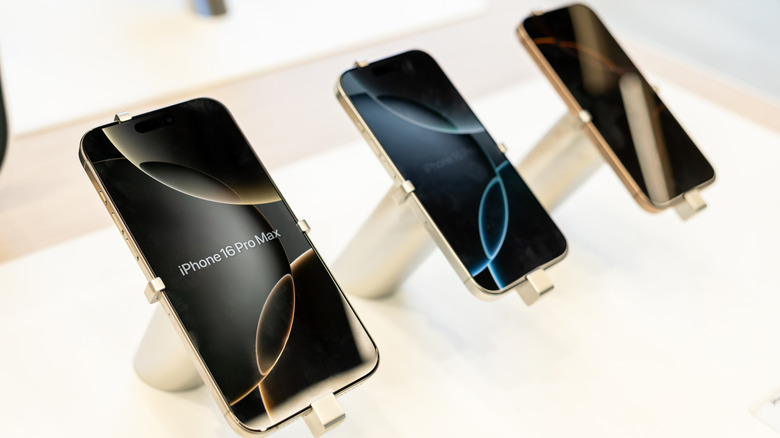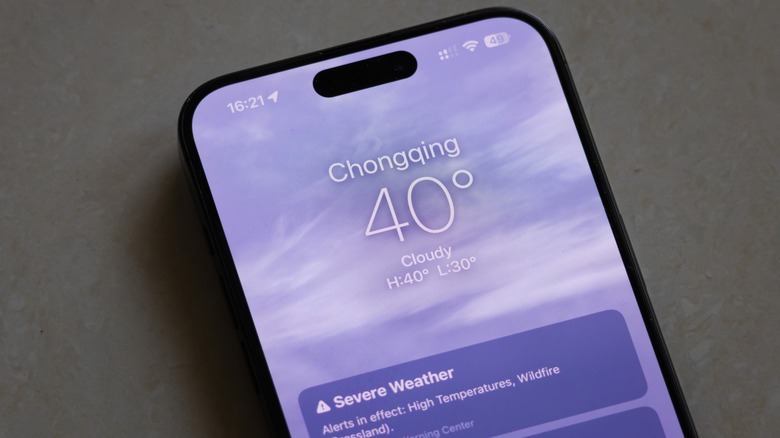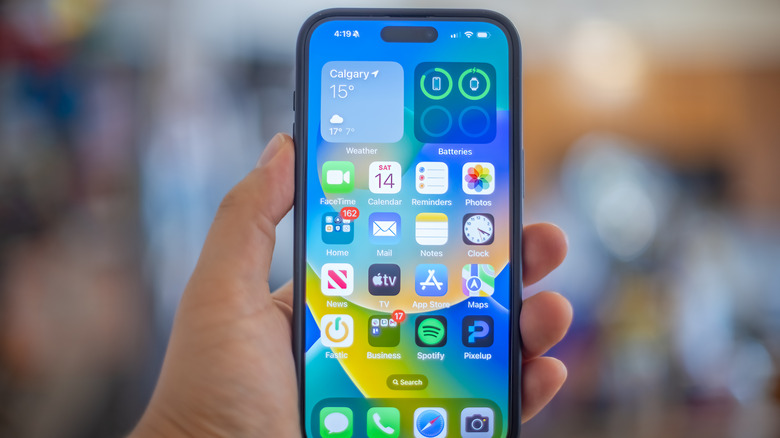Refurbished Vs. Used iPhones: What's The Difference Between These Buying Options?
Apple products don't come cheap. Let's take the current iPhone lineup, the iPhone 16 series, for example. The standard iPhone 16 starts at $799, while the iPhone 16 Plus starts at a slightly higher $899. Coming to the premium models, the iPhone 16 Pro starts at $999, and the iPhone 16 Pro Max starts at $1199. Even the budget-friendly option in the lineup, the iPhone 16e, starts at $599, which is only $200 less than the standard model, but with its lack of a Camera Control button, it doesn't quite look or feel like an iPhone 16. Instead, it looks more like a slightly updated model stuck in the past.
So, what if you neither want to drop nearly a grand on one of the flagships yet nor want to compromise and settle for a budget model that feels like a blast from the past? Well, short of ditching the idea of getting an iPhone altogether, you're left with two practical options: buying a used iPhone or going for a refurbished one. At first glance, they might seem like the same thing: an older iPhone at a significantly lower price. But there are some important differences between the two.
A used iPhone is... well, used
A used iPhone is exactly what it sounds like: a phone that's already been used by someone else. In most cases, the device still works as you'd expect it to, but don't expect it to come in mint condition or with a 100% Battery Health.
Of course, there are those cases where you might get a used iPhone in pretty much excellent condition. Maybe the owner was an Android convert who missed the return window, or just upgraded weeks after buying it and flipped it for some quick cash. But most used phones typically show some signs of wear, and the buying experience primarily depends on who you're buying the iPhone from. If you're getting it from an acquaintance, chances are you already know what kind of condition it is in, and can trust there won't be any unpleasant surprises. Even in a worst-case scenario type of situation, you can end up hashing out any issues you might encounter directly with the person you bought it from.
Things get truly tricky when you're buying from strangers or online listings, though. There's no real way to verify how the phone was used or if it's even fully functional until it's in your hands. Though iPhones are known to be durable, there are times when they need to be repaired. Speaking of which, when buying a used iPhone, you have no way of knowing exactly if or how it was repaired. For example, if there was a cracked screen, was it replaced by Apple with a genuine display or swapped with a cheaper third-party one? These are little things you probably won't know until something starts acting up. With most used iPhones, there's a level of uncertainty involved, and no real guarantee they'll respond once the money's left your hands.
Refurbished iPhones aren't brand new, but they're close
Refurbished iPhones are also technically "used" devices, but they've been professionally inspected, tested, and, if necessary, repaired to ensure they're in proper working condition.
The best part about getting a refurbished iPhone is that you can buy it directly through Apple's Certified Refurbished program, where you can save up to 15% on the original price. When you buy a refurbished iPhone directly from Apple, your device will come with a brand-new battery, a new outer shell, and a one-year limited warranty. On top of that, all refurbished Apple products are also eligible for AppleCare, giving you the option to extend your coverage just like you would with a brand-new device.
In case you're still not satisfied with the refurbished device when you get your hands on it, Apple also offers free delivery and returns. Apple also claims that all its refurbished devices go through "full functional testing" and are repaired with genuine Apple part replacements. They also get a thorough cleaning before they're repackaged in a brand-new white box with all the accessories and cables included.
Although a used iPhone might cost less than a refurbished one, what you're paying extra for with the latter is peace of mind. If you're someone who's cautious about buying tech second-hand but still wants to save some money, refurbished is probably the sweet spot. If you'd rather not purchase directly from Apple for whatever reason, you can get a refurbished iPhone through third-party retailers, such as Best Buy, Amazon, Walmart, Back Market, etc. Just keep in mind that if you go the third-party retailer route, you won't get the same perks as you would with Apple, like the option to get AppleCare.


